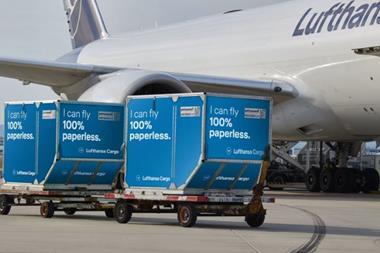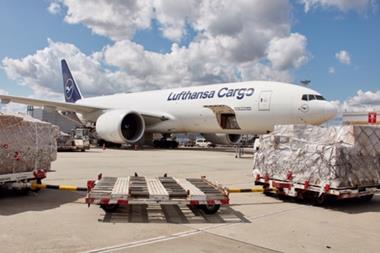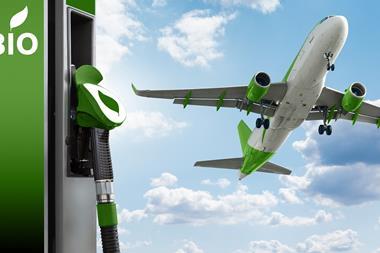Lufthansa Cargo has outlined some of the projects it is implementing to tackle three of the major developments that are shaping the future of air cargo.
The freighter operator said that developing to meet the requirements of sustainability, digitalisation and e-commerce are some of the main challenges facing the industry today.
The firm's chief executive Ashwin Bhat said: "We are currently experiencing various upheavals within the airfreight industry. Sustainability, digitalisation and booming online trade are playing a central role.
"In order to be able to master this, we are relying on decisive and dynamic action along with all stakeholders in the industry.
"This is the only way we can remain fit for the future and live up to our responsibility as one of the world's leading airfreight companies and enabling global business."
To meet rising e-commerce demand, the airline recently outlined plans to develop e-commerce capabilities at its main Frankfurt hub.
Lufthansa Cargo is, together with subsidiaries - CB Customs Broker and logistics service provider heyworld - and partners, expanding the capacity of its e-commerce hub in Cargo City Nord and investing in software developments.
The airline has also been investing in a short/medium haul freighter network that targets the e-commerce market.
Most recently, the carrier added its third Airbus A321 to the network and will add a fourth later this year.
The additional aircraft will expand capacity and route network the carrier said.
At the moment, the carrier offers more than 50 weekly flights to 14 destinations, with the latest additions being Casablanca, Yerevan and Tunis.
Bhat explained: "A decisive success factor for online retailing is the resilience and speed of the supply chain.
"We want to make Frankfurt a leading location in this segment by offering holistic solutions for shipping, customs clearance, and onward transport of eCommerce shipments."
On digitalisation, the carrier said that it had recently partnered with customer Kühne+Nagel to transport 100% of general cargo by electronic air waybill as well as the digital accompanying documents between Germany and Hong Kong.
"This first purely 'paperless route' is the starting signal for the introduction of 'paperless corridors' for efficient and resource-conscious transports between Europe and Asia," the company said.
And on sustainability, the airline is aiming to halve its carbon footprint compared with 2019 in order to operate CO₂-neutral by 2050.
Lufthansa Cargo recently implemented the European Union regulation ReFuelEU, a binding quota of renewable fuels (SAF) for aviation with 2% SAF to be used by 2025, and at least 6% by 2030.
The carrier has already hit the 2% mark. It will also utilise digitalisation to help improve its environmental performance.
"We see great potential in AI-based applications and have already integrated them into our services," said Nicole Mies, head of communication and corporate responsibility at Lufthansa Cargo.
"From eBooking to eTracking, we now offer our customers extensive options along the transport chain. If we want to sustainably improve the industry's carbon footprint, we must use every opportunity to further reduce our CO₂ emissions."














